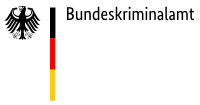History of the DVI Team

The impressions and experiences made by the officers sent to Tenerife in 1972 to identify the victims of the aircraft crash in Santa-Cruz lead to the deployment of a Disaster Victim Identification Team at the Federal Criminal Police Office as the central agency of criminal police in Germany.
Since that time, the DVI Team has carried out a total of 33 operations in Germany and abroad, 19 of them were in connection with aviation disasters. The DVI Team has examined a total of 1983 victims so far; 1895 of them have positively been identified.
Areas of Activity of the DVI Team
The task of the DVI Team is to identify the victims of large disasters, in particular when
- a large number of German victims are to be expected in a foreign country
- the number of victims in Germany justifies a DVI Team mission.
On mission, the DVI Team operates independently in consultation with the local authorities responsible, into which the team is organisationally integrated for the purpose of the mission.
From the beginning, the DVI Team applied rigorous standards to their work which lead to an excellent international reputation of the Team.
International Co-Operation
The working methods, organisation, equipment and experience of the DVI Team were taken into account when other countries planned and deployed teams with identical tasks. Representatives of the DVI Team belong to an international working group which meets once a year at the General Secretariat of the IKPO Interpol in Lyons to internationally coordinate identification methods and to improve the international co-operation in the identification of victims of large disasters.
Staff and Organisational Structure of the DVI Team
At present, the DVI Team consists of approx. 120 active members from the Federal Criminal Police Office, who co-operate on a voluntary basis. On mission, the DVI Team also uses a pool of external experts (pathologists, dentists, psychological/social experts).
From this group of persons the DVI Team is formed and dispatched to the scene of the disaster as quickly as possible with the consent of the country concerned or at the request of the local German authority responsible.
Working Methods
At the scene of the mission, criminalistic knowledge is used to collect all details which might help to identify the victims. This involves the taking of fingerprints and the exact listing of all jewellery and clothes discovered at the dead bodies. In addition, forensic findings are collected to draw up a detailed physical description, the discovery of special features at and within the body, the gathering of dental information and the obtaining of tissue samples for a DNA analysis which might be necessary.
Parallel to the examinations at the scene of the disaster, ante mortem data (comparative information such as DNA, dental information, fingerprint traces etc.) of possible victims are collected at the Federal Criminal Police Office in Wiesbaden through the competent national and international police services in order to compare these data with the findings collected on the spot.
Previous Missions
A well-known mission of the DVI Team was on the occasion of the accident of the ICE 844 train "Wilhelm-Konrad-Röntgen" in Eschede on 03.06.1998. A total of 101 persons were killed in the accident. The DVI Team positively identified all examined 96 victims. Most of the identifications were made by means of dental records and fingerprint comparison. In one case the identification was only possible by means of a DNA comparison.
The identification of the victims of the aircraft crash near Überlingen at the Lake Constance in 2002 was also made by the DVI Team. The experts of the Federal Criminal Police Office identified all 71 victims of the disaster in which a passenger aircraft had collided with a freight aircraft.
The by far largest and longest mission of the DVI Team was in connection with the seaquake northwest of Sumatra (Indonesia) at Christmas 2004. Thousands of human beings, among them many German tourists, fell victim to the tsunami caused by this seaquake. With the assistance of DVI Teams of other countries 2,900 persons, among them 538 persons reported missing in Germany, have been identified in Sri Lanka and Thailand so far. The mission with more than 630 experts of the Federal Criminal Police Office and the state police forces as well as with forensic medicine specialists and dentists lasted 14 months.
The last mission of the DVI Team was in connection with the earthquake in Haiti on 12.01.2010. Much more than 100,000 human beings, among them 4 Germans, lost their lives in this disaster. The German nationals have been positively identified by the DVI Team.
